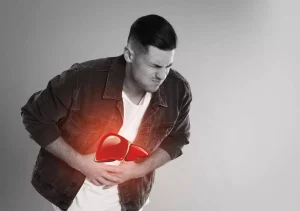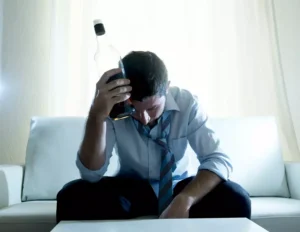
However, Mezulis notes that even people without a history of trauma can be triggered when something elicits a strong emotional reaction. Triggers refer to the experience of having an emotional https://ecosoberhouse.com/ reaction to a disturbing topic (such as violence or the mention of suicide) in the media or a social setting. However, there is a difference between being triggered and being uncomfortable.

The Importance of a Relapse Prevention Plan
Users in recovery can ask themselves some questions to help them understand their internal thoughts and feelings. Overconfidence in recovery can be dangerous, as it can lead to a false sense of security, making you more likely to take risks and eventually relapse. It’s important to remain conscious of the fact that addiction is a chronic illness, and relapse is always a possibility.
Social Media
By addressing stress and anxiety head-on, you’ll be better equipped to resist the temptation of drugs or alcohol. On the other hand, external triggers are people, places, and objects that remind you of past substance abuse and reinforce the desire to use drugs or alcohol. Effectively dealing with both internal and external triggers plays a significant role in maintaining your recovery goals. Dealing with mental relapse and understanding emotional relapse involves a constant internal battle between abstinence and temptation.
- In contrast, managing internal triggers may involve developing healthier coping mechanisms and seeking professional help to better understand and process negative emotions.
- Therapy tends to take time, so having patience with yourself and the process can be essential to long-term success.
- By proactively addressing emotional turmoil, you can maintain your sobriety and continue on your recovery journey.
What can you do if you are triggered?
A therapist can help you work out complex emotions that may arise as you go through recovery. Your therapist can also teach you tools and strategies for coping with cravings and triggers. Therapists experienced in substance use disorders can help you identify and analyze internal and external triggers possible triggers. When people in recovery succumb to triggers, their brains create reasons to use substances despite knowing that they must remain abstinent. This ongoing fight increases their vulnerability to cravings, which may result in a potential relapse.

After experiencing a trigger, a person may have big, negative feelings – overwhelm, powerlessness, fear, etc. These feelings can be detrimental to mental health and are often a challenge to effectively address after they arise. These triggers can vary from person to person, but some common examples include stress, boredom, loneliness, and feeling overwhelmed. Other triggers may include seeing people who use drugs, being in certain places, or even certain smells or sounds. We must be aware of these potential triggers to maintain our recovery journey and stay on the path of sobriety.
Internal Triggers
- However, there is a difference between being triggered and being uncomfortable.
- These behaviors can make the individuals feel alienated and push them toward substance use.
- Healthier practices need to replace these negative internal processes in order to help people succeed in their path to a substance-free life.
- This causes the body to experience symptoms as it did in response to the original trauma (such as the fight-or-flight response).
While some people may not understand your actions, over time they will have to learn how to respect your choices. Triggers are sensory reminders that cause painful memories or certain symptoms to resurface. You might be surprised at how people find excuses to hold on to connections with people who threaten their recovery. At this critical initial stage, it can be important to ensure that you continue certain treatment aspects, such as counseling and communicating with recovery experts. If you are newly in recovery, you may want to consider an outpatient program for your first few months into sobriety. Recovery can be an intensely personal experience, so it’s important to embrace whatever works for you.

Call in your support system
- Finally, they can reduce their risk of relapse by understanding their triggers and cravings and having a plan in place.
- One of the cornerstones of treatment options for addiction recovery is education about triggers and healthy ways to cope with them.
- Talking through the trigger and enlisting someone else’s help can provide you with the motivation and assistance needed to overcome the trigger and stay sober.
- Others turned to substance use because of boredom or to enhance pleasurable experiences.